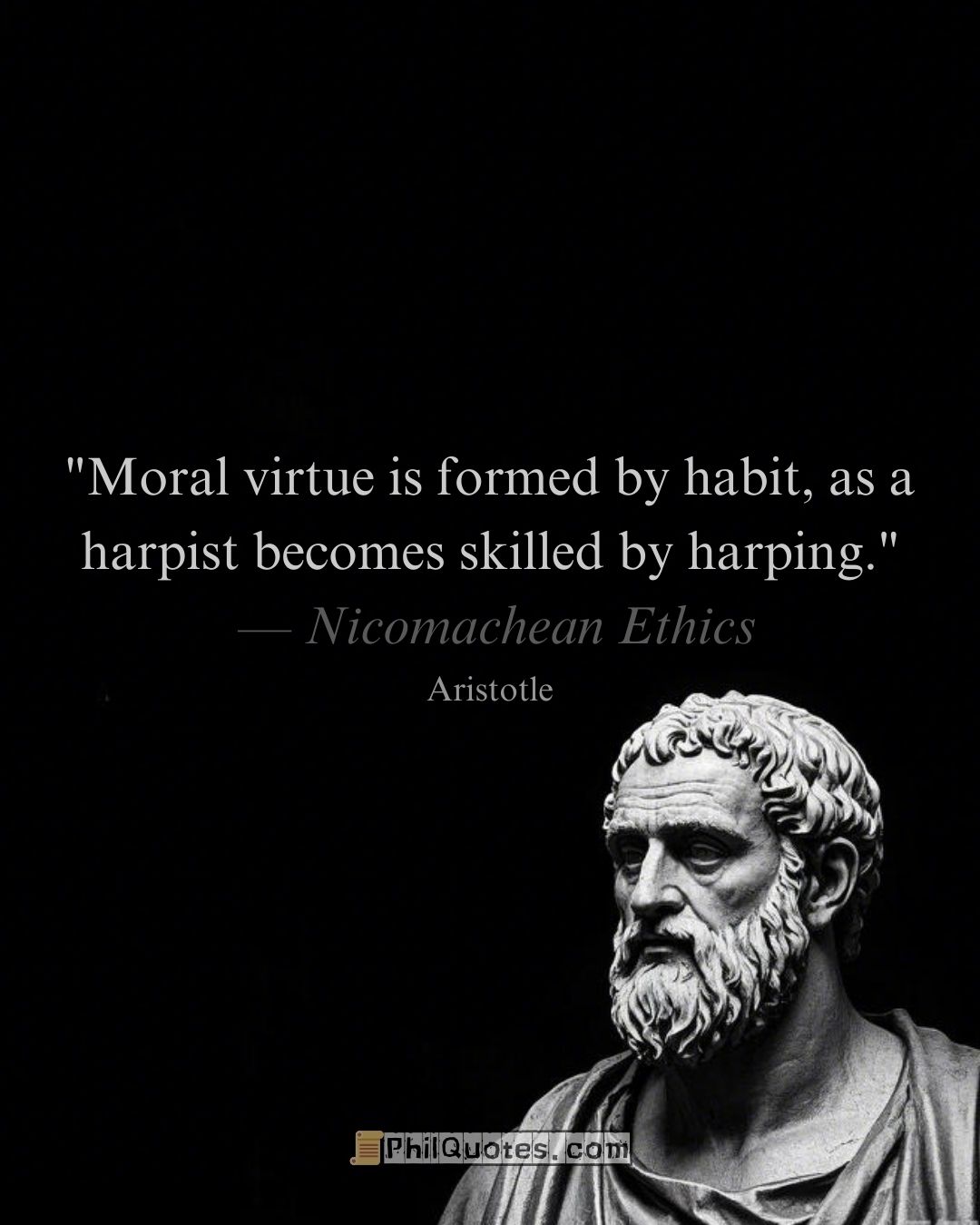
“Moral virtue is formed by habit, as a harpist becomes skilled by harping.”
— Aristotle, Nicomachean Ethics, Book II, Chapter 1
(Translated by W.D. Ross)
 Core Idea
Core Idea
Ethical growth is your brain’s Spotify algorithm — the more you “play” honesty playlists (
 Why This Matters Today
Why This Matters Today

Weak habit: Copy homework once → normalized cheating
Strong habit: Cite sources daily → build intellectual honesty

Weak habit: Scroll hate comments passively → desensitization
Strong habit: Report toxicity + post kindness → program online empathy

Weak habit: Occasional recycling → greenwashing
Strong habit: Daily reusable bottle + thrift hauls → wire sustainable reflexes
 Action Steps
Action Steps
- Virtue Practice Tracker
Use Streaks app:
“Daily reps: 1 honest act + 1 empathetic reply + 1 eco-choice” - 21-Day Habit Challenge
- Week 1: “No-Cheat Week” (homework/snacks/screens)
- Week 2: “Pro-Virtue Week” (tutor peers/volunteer 2hrs)
- Habit Jamming Sessions
Form 3 friends → meet weekly → compose “moral melody” goals (e.g., “Climate Action Remix”)
 PhilQuotes | Philosophers' Wisdom
PhilQuotes | Philosophers' Wisdom  Love
Love  Success
Success  Quotes | Art & Ethics
Quotes | Art & Ethics 

